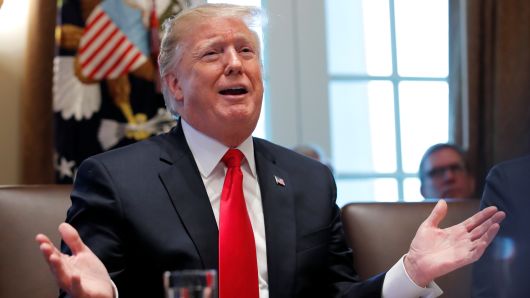Washington: The US Constitution explains how a President can be removed from office for “high crimes and misdemeanors” by Congress using the impeachment process. But the Constitution is silent on whether a President can face criminal prosecution in court, and the US Supreme Court has not directly addressed the question.
The US Justice Department has a decades-old policy that a sitting President cannot be indicted, indicating that criminal charges against Trump would be unlikely, according to legal experts.
In 1973, in the midst of the Watergate scandal engulfing President Richard Nixon, the Justice Department’s Office of Legal Counsel adopted in an internal memo the position that a sitting President cannot be indicted. Nixon resigned in 1974, with the House of Representatives moving toward impeaching him. The department reaffirmed the policy in a 2000 memo. It concluded that criminal charges against a President would “violate the constitutional separation of powers” delineating the authority of the executive, legislative and judicial branches of the US government. The 1973 and 2000 memos are binding on Justice Department employees, including Mueller.
Some lawyers have argued that the nation’s founders could have included a provision in the Constitution shielding the President from prosecution, but did not do so, suggesting an indictment would be permissible.
The question looms large with Special Counsel Robert Mueller preparing a report on his investigation into Russia’s role in the 2016 US election, whether President Donald Trump’s campaign conspired with Moscow and whether Trump unlawfully sought to obstruct the probe
Could Mueller indict Trump despite the existing policy?
Possibly. The Justice Department regulations governing Mueller’s appointment allow him to deviate from department policy in “extraordinary circumstances” with the approval of the US attorney general, the nation’s top law enforcement official. Trump appointee William Barr currently holds that post.
Could Trump be removed from office and then prosecuted?
Yes. There is no debate over whether a former President can be indicted for conduct that occurred while in office. In fact, President Gerald Ford, who succeeded Nixon after his resignation, was mindful of this when he granted “a full, free, and absolute pardon unto Richard Nixon for all offenses against the United States which he, Richard Nixon, has committed or may have committed.”
